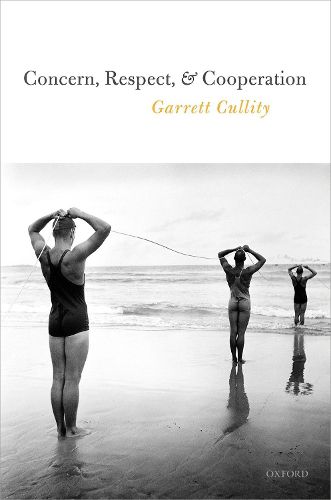Readings Newsletter
Become a Readings Member to make your shopping experience even easier.
Sign in or sign up for free!
You’re not far away from qualifying for FREE standard shipping within Australia
You’ve qualified for FREE standard shipping within Australia
The cart is loading…






Three things often recognized as central to morality are concern for others’ welfare, respect for their self-expression, and cooperation in worthwhile collective activity. When philosophers have proposed theories of the substance of morality, they have typically looked to one of these three sources to provide a single, fundamental principle of morality - or they have tried to formulate a master-principle for morality that combines these three ideas in some way. In Concern, Respect, and Cooperation, Garrett Cullity urges us to think of them instead as three independently important foundations of morality. Plural-foundation moral theories are sometimes criticized for having nothing helpful to say about cases in which their fundamental norms conflict. Responding to this, Cullity concludes with three detailed applications of his theory: to the questions surrounding paternalism, the use of others as means, and our moral responsibilities as consumers.
$9.00 standard shipping within Australia
FREE standard shipping within Australia for orders over $100.00
Express & International shipping calculated at checkout
Three things often recognized as central to morality are concern for others’ welfare, respect for their self-expression, and cooperation in worthwhile collective activity. When philosophers have proposed theories of the substance of morality, they have typically looked to one of these three sources to provide a single, fundamental principle of morality - or they have tried to formulate a master-principle for morality that combines these three ideas in some way. In Concern, Respect, and Cooperation, Garrett Cullity urges us to think of them instead as three independently important foundations of morality. Plural-foundation moral theories are sometimes criticized for having nothing helpful to say about cases in which their fundamental norms conflict. Responding to this, Cullity concludes with three detailed applications of his theory: to the questions surrounding paternalism, the use of others as means, and our moral responsibilities as consumers.